MercoPress. South Atlantic News Agency
Politics
-
Wednesday, August 11th 2010 - 06:04 UTC
Paraguayan president under treatment in Sao Paulo oncology clinic
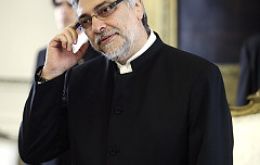
Paraguayan president Fernando Lugo has undergone oncology tests at a leading hospital in Sao Paulo under the supervision of a team of four Brazilian and one Paraguayan professional headed by President Lula da Silva chief medic, Dr. Roberto Kalil Filho.
-
Wednesday, August 11th 2010 - 05:57 UTC
Fidel brushes aside any remote chance of Colombia attacking Venezuela

Former Cuban President Fidel Castro dismissed the possibility of a Colombian attack on Venezuela, and said he felt positive about Colombia's future under the leadership of newly sworn-in President Juan Manuel Santos.
-
Wednesday, August 11th 2010 - 05:45 UTC
Santos/Chavez admits differences but restore diplomatic relations
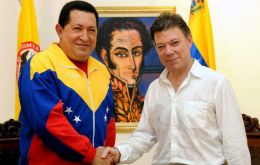
Colombian President Juan Manuel Santos and Venezuela's Hugo Chávez announced the resumption of diplomatic ties following talks to end the latest dispute between the two neighbouring but ideologically opposed countries.
-
Tuesday, August 10th 2010 - 14:19 UTC
Since last year Chilean women are a majority in higher education and increasing

Last year was the first time that a majority – 51% - of all higher education students in Chile were women, the Education Ministry reported last week.
-
Tuesday, August 10th 2010 - 05:03 UTC
Colombia/Venezuela to resume relations, Santos anticipates to Lula da Silva
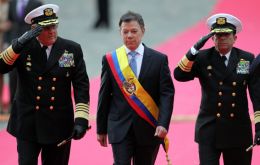
Colombian president Juan Manuel Santos informed his Brazilian peer Lula da Silva that Bogotá and Venezuela would resume full diplomatic relations “in coming hours”, according to a spokesperson from the Brazilian presidency.
-
Tuesday, August 10th 2010 - 05:02 UTC
Raul Castro wants “an opening” with Washington to help with the economy
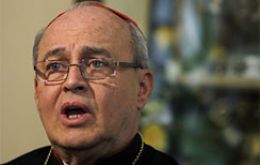
Cardinal Jaime Ortega, Roman Catholic archbishop of Havana, told The Washington Post that Cuban President Raul Castro wants “an opening” with the United States.
-
Tuesday, August 10th 2010 - 01:25 UTC
Kirchner meets Santos confirms dialogue process with Venezuela
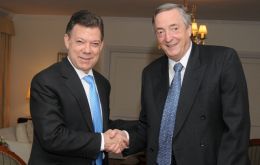
Unasur (Union of South American Nations) secretary general Nestor Kirchner held a meeting Monday with Colombian president Juan Manuel Santos to keep advancing in the dialogue process with neighbouring Venezuela sponsored by the group. Santos and his Venezuelan counterpart are scheduled to meet Tuesday.
-
Tuesday, August 10th 2010 - 01:21 UTC
Lula da Silva underlines as his main legacy relation with the Brazilian people
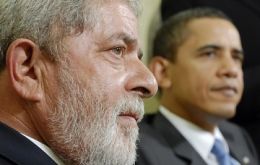
With less than five months in office and a public opinion support of 80%, President Lula da Silva considers his most important legacy the relation established between the presidency and the Brazilian people.
-
Tuesday, August 10th 2010 - 01:15 UTC
Spanish mayor firm on charging fee to tourists visiting Gibraltar
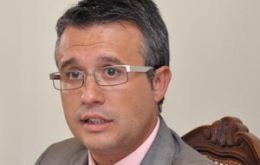
Alejandro Sánchez, the mayor of La Lineá, the Spanish town which adjoins Gibraltar, held a press conference Monday evening. He was accompanied by his council members and briefed the media on his controversial plans to charge an entrance fee to tourists visiting The Rock.
-
Tuesday, August 10th 2010 - 01:12 UTC
Venezuela will be incorporating several “non-atomic” submarines
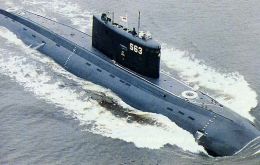
Very soon “we will have our submarines cruising” which will be “normal submarines”, with no nuclear capacity at all, pointed out Venezuelan president Hugo Chavez, in anticipation of any criticisms “that could suggest such an option”.
